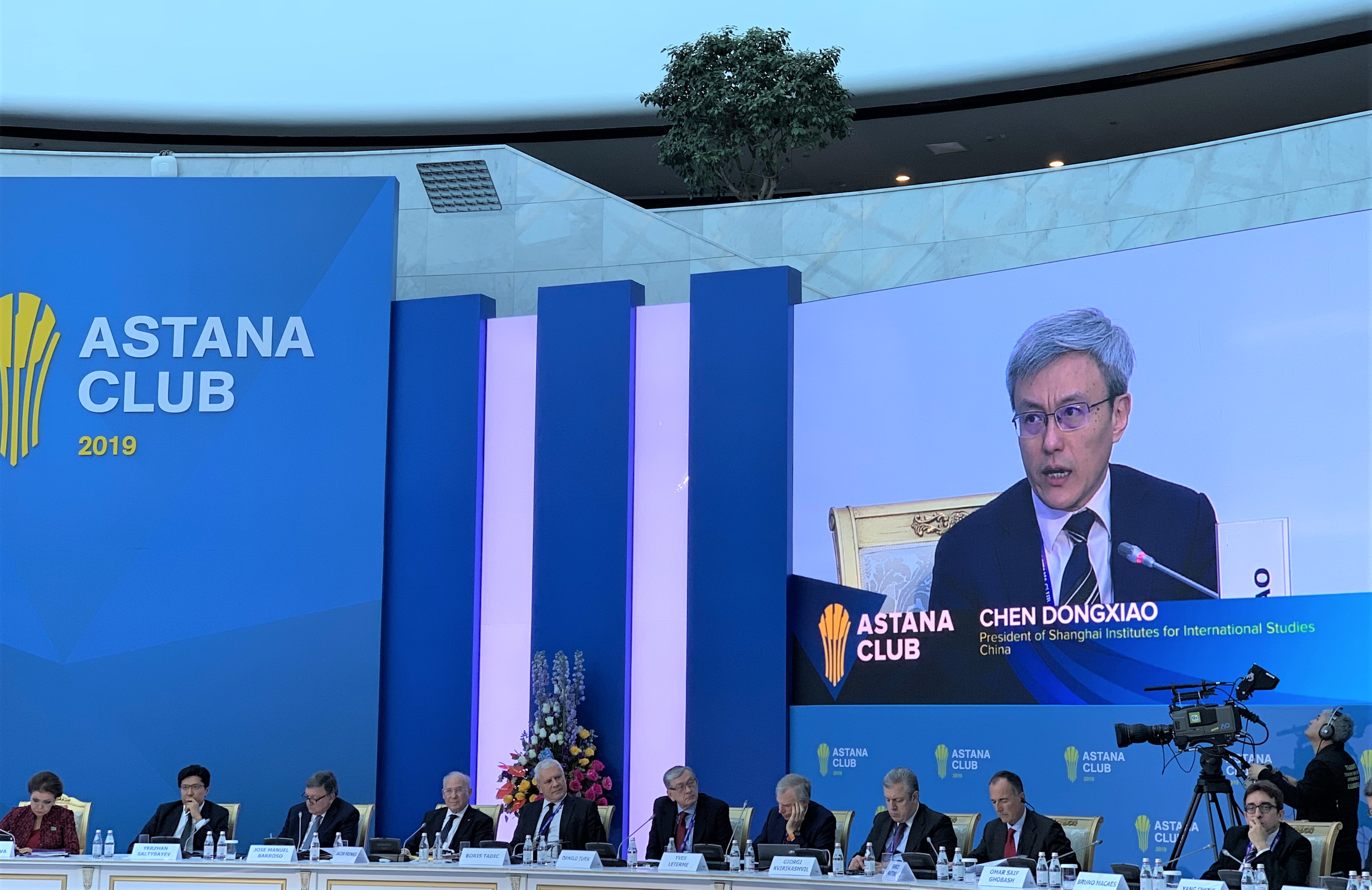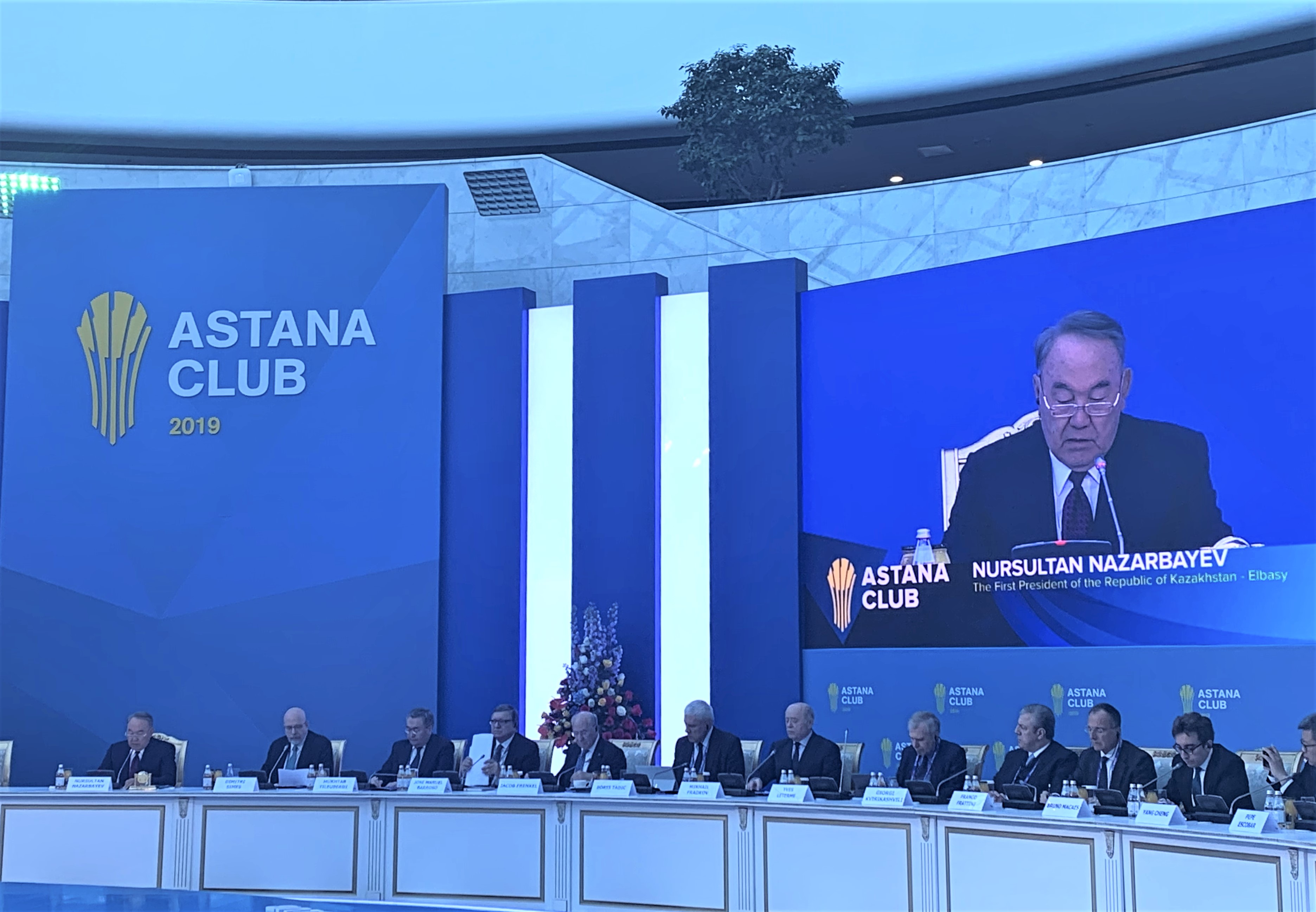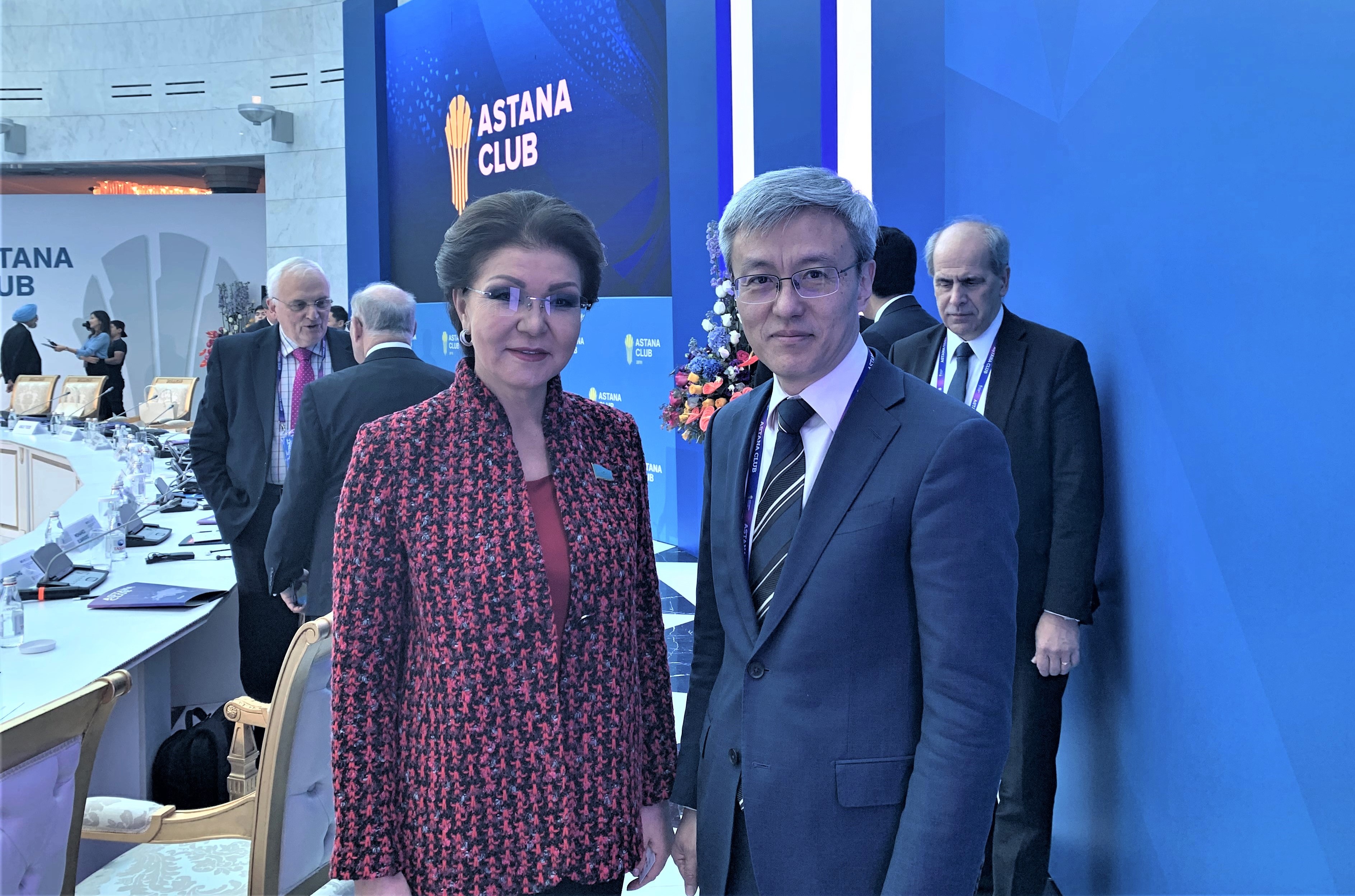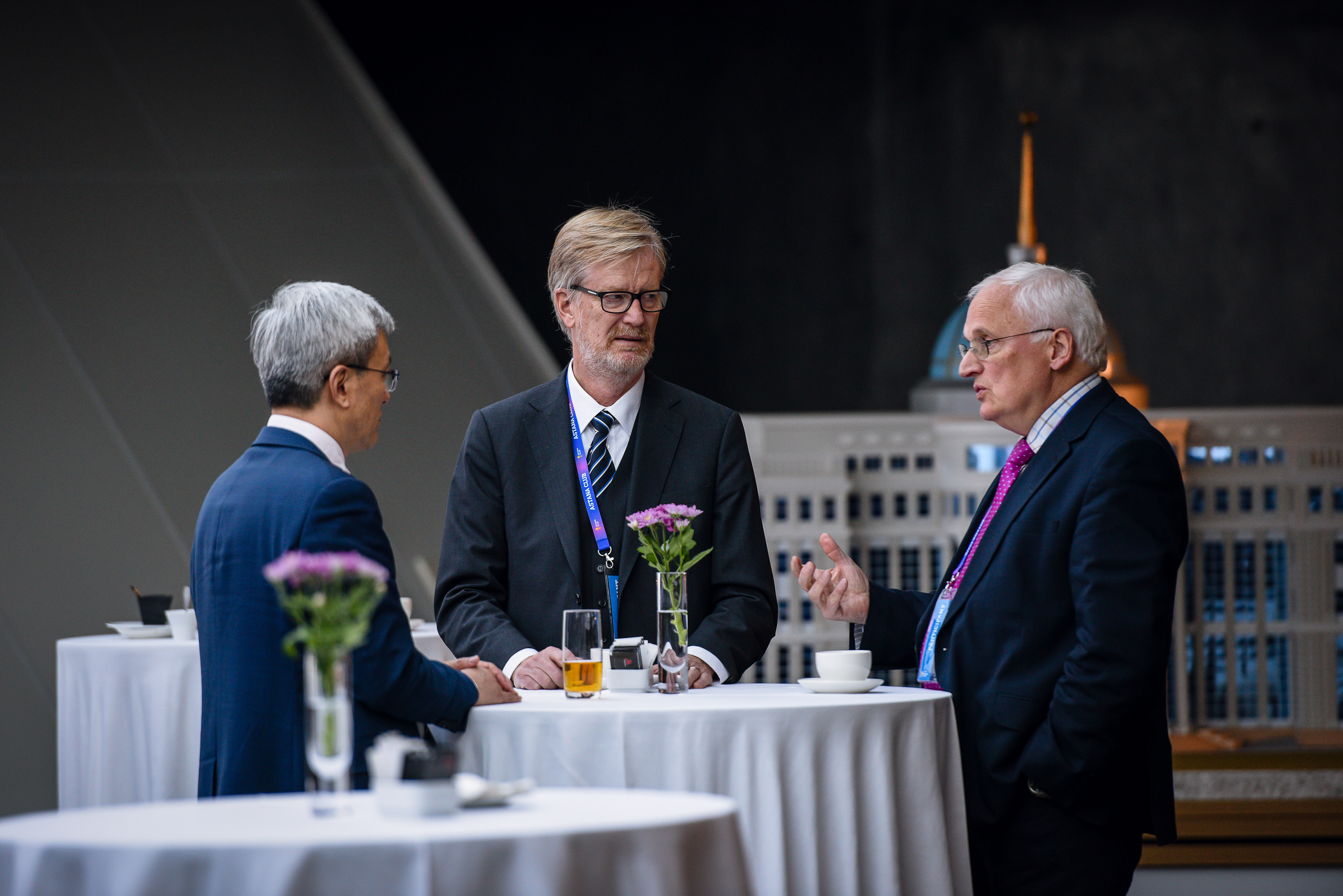Through Nov. 11-12, 2019, SIIS President Chen Dongxiao attended the fifth Meeting of Astana Club in Nur-Sultan, Kazakhstan.

The theme of this meeting was Greater Eurasia: On the Way to New Architecture of Global Cooperation. The First President of the Republic of Kazakhstan, Elbasy Nursultan Nazarbayev participated in the meeting and delivered keynote speech. Dariga Nazarbayeva, director of the Fund of the First President of the Republic of Kazakhstan, & Chair of the Senate of the Parliament of the Republic of Kazakhstan gave welcome speech in the opening session.


More than 50 politicians, scholars and analysts around the world held discussions on the future prospects for development of countries, geopolitics, economic trends and risks. Speakers included former President of Afghanistan Hamid Karzai, former President of Slovenia Danilo Türk, former Prime Minister of Spain Jose Luis Zapatero, former President of the European Commission, former Prime Minister of Portugal, Non-executive chairman of Goldman Sachs International Jose Manuel Barroso, former Prime Minister of Belgium Yves Leterme, Foreign Minister of the Islamic Republic of Iran Mohammad Javad Zarif, Vice President of the Carnegie Endowment for International Peace Evan Feigenbaum, Director of the Stockholm International Peace Research Institute Dan Smith, and Chairman of the Supervisory Board of the Dialogue of Civilizations Research Institute Vladimir Yakunin etc.

SIIS President Chen Dongxiao delivered a keynote speech on global information security and cooperation. He believes that at present, including the rapid development of technology in the field of network communications, the weaponization and technological nationalism of information technology are spreading, and the risk of fragmentation and even great division of global cyberspace governance is on the rise. It is necessary to build consensus and regulation on international governance in cyberspace, to improve international cooperation and confidence measures to reduce the risk of military security conflicts in cyberspace. We should also maintain the stability of the international supply chain for technological innovation and industrial cooperation in cyberspace, and maintain the security of key infrastructure in cyberspace. To jointly deal with the above-mentioned public hazards, including cyber terrorism and cybercrime, the international community, especially think tanks, should strengthen exchanges and cooperation in these areas. Prof. Qiang Xiaoyun, deputy director of the Center for Russian and Central Asia Studies also participated in the meeting.
